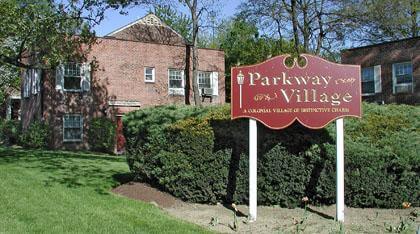By Alex Christodoulides
Parkway Village and its former property manager agreed to pay $490,000 to the Environmental Protection Agency after they were charged with conspiring to violate federal Superfund law in the illegal removal and disposal of asbestos at the complex in the fall of 2006, the U.S. attorney in Brooklyn said.
The former superintendent at the co-op was charged separately with conspiring to violate the federal Toxic Substances Control Act, the U.S. attorney's office said.
The fine is part of a deferred prosecution agreement between the federal government and Parkway Village, according to documents unsealed last week in Brooklyn federal court.
The 109-unit Parkway Village co-op complex, at 81-26 150th St. in Kew Gardens Hills, was built between 1946 and 1948 as housing for members of the United Nations, and was heated by asbestos-insulated underground steam pipes connected to a central boiler plant, according to court papers.
From 2002 until 2006, Parkway Village; former property manager George Halpin, 66; former superintendent Layton Cervantes, 39; and others allegedly improperly removed and disposed of the underground steam pipe insulation, the court papers said.
The federal suit alleges that Parkway Village employees who were not licensed to abate or handle asbestos and were not provided with protective equipment periodically removed the asbestos with their bare hands and simply buried it on the co-op's grounds, the U.S. attorney's office said.
In September 2006, two former Parkway Village handymen went to federal authorities with information about the illegal asbestos removal, the court papers said.
The following month the federal government obtained a search warrant to excavate and search five locations at the co-op for illegally buried asbestos-containing material, according to the documents.
The EPA and FBI conducted a four-week search and environmental remediation at the co-op, where EPA experts and chemists discovered asbestos-containing material at several sites buried in plastic bags, buried in the soil and scattered on the surface of the soil near residential buildings, the court papers said.
The EPA designated asbestos as a hazardous air pollutant in 1971. According to the agency's Web site, exposure to high amounts of asbestos fibers is linked to increased risk of lung cancer and other chronic and fatal respiratory conditions.
Asbestos is covered under the 1980 federal Comprehensive Environmental Response, Compensation and Liability Act, which created the Superfund designation and authorized the government to respond directly to releases or threatened releases of hazardous substances that may endanger public health or the environment.
In the agreement between the federal government and Parkway Village, the co-op accepted conditions, including removal of asbestos from multiple areas in the complex, future compliance with all relevant environmental laws and the payment of $490,612 to the EPA for the 2006 remediation, the court papers said.
If convicted of conspiracy to violate the federal act, Halpin faces up to five years in prison and Parkway Village faces a maximum fine of $500,000 or the monetary gain that resulted from the offense, the court papers said.
If convicted of conspiracy to violate the Toxic Substances Control Act, Cervantes faces up to one year in prison, the U.S. attorney's office said.



































